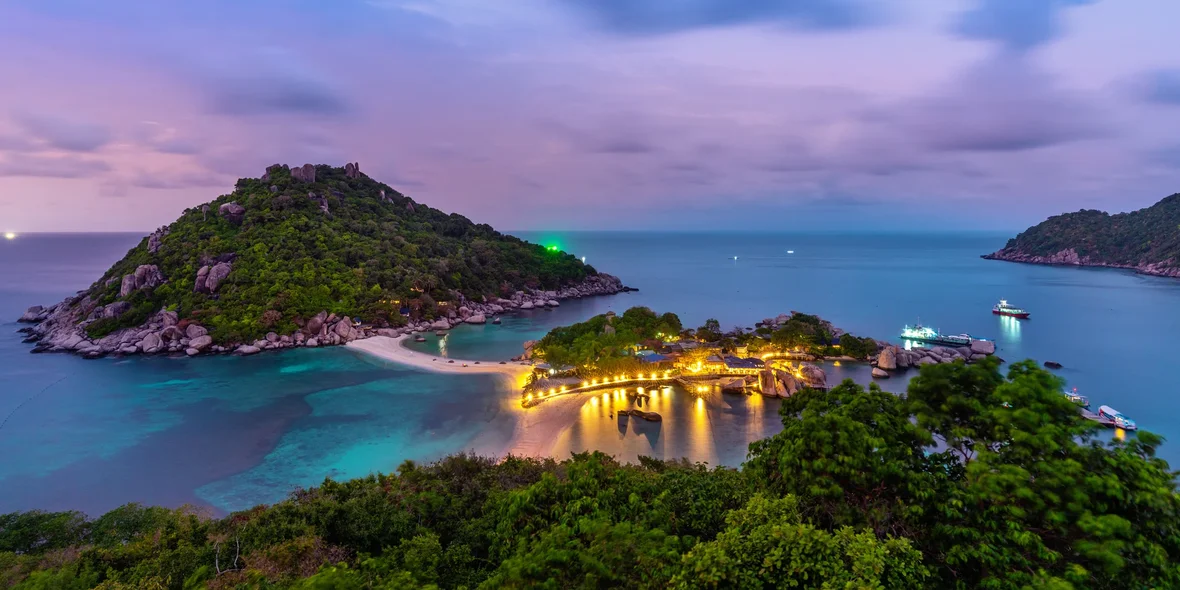
Phuket Real Estate Market Situation: What Has Changed and the Best Ways to Invest
In the first half of 2025, foreign investment in real estate in Phuket increased by 24% — this is evidence of increased interest from foreign buyers. We talked to a market expert, Martin Phillips, about what is happening with prices on the island, how to properly arrange a transaction for a foreigner, and what profitability an investment in Thai real estate can bring.
Current Real Estate Market Trends in Phuket
— What is happening in the Thai real estate market now? What are the main trends in 2025?
— The real estate market in Thailand in general and Phuket in particular is showing steady growth. After the pandemic, the recovery turned out to be faster than many had predicted. Prices for luxury villas, seaside condominiums, and eco-friendly projects are growing especially actively.
Foreign investment has increased significantly, and this has stabilized the price situation. Tourism, of course, remains a key driver — when there are a lot of tourists, the demand for rent increases, followed by the purchase of real estate for investment.
— What about the specific areas of Phuket? Where is the most interesting place to buy now?
— Patong, Kata, and Bang Tao are classics of the genre. A high flow of tourists guarantees a good rental yield. But now I would pay attention to Kamala and Surin, where the price-quality ratio is still very attractive.
In the Bang Tao area, prices for luxury condominiums have already reached 150–180 thousand baht per square meter, but the profitability is also appropriate. Karon is interesting because there are many family tourists there — a stable audience for long-term rentals.
Buying Property in Phuket by Foreigners: Opportunities and Limitations
— Many people are interested in the issue of ownership. What can a foreigner buy in Thailand?
— A condominium is the most understandable and safe option for a foreigner. You can own up to 49% of the total building area. This is a full-fledged property that is registered with the Land Department.
It is more difficult with land and villas — direct ownership of land is prohibited for foreigners. But there are several legal ways: a long-term lease of land for 30 years with the possibility of extension, the creation of a Thai company, or registration through a Thai citizen spouse.
— What about land leasing? Many people are afraid that they will lose everything in 30 years.
— A 30-year lease is a proven scheme. In most cases, contracts are automatically renewed, but from 2025 onwards, for no more than 30 years.
The main thing is to carefully read the contract and work with trusted companies. In 30 years, real estate usually pays off in full with rental income.
The increase in leasing to 99 years and the quota of foreigners in condominiums to 75% are still only under discussion.
«There are practically no mortgages for foreigners.»
— Is it possible to get a mortgage for a foreigner?
— Mortgages for foreigners in Thailand are very rare. Most banks do not lend to non-residents. Several banks, including UOB, offer loans to foreigners with work visas, but this is rather an exception.
An initial payment of 30-50% is usually required, and interest rates start at 12% per annum for specialized lenders. That’s why most foreigners buy real estate for cash, although some developers offer installments at 3–7% per annum, which is much more profitable than bank loans.
— And what documents are needed for the purchase?
— Standard set: valid international passport, income certificates, Thai tax number if available. You must have a certificate on the transfer of currency funds to Thailand — Foreign Exchange Transaction (FET).
The purchase is registered with the Land Department. The procedure is simple for condominiums, more complicated for land and villas. You definitely need a good Thai lawyer — this is not a case where you can save money.
Profitability and Management of Real Estate on the Island
— What kind of profitability can you expect from real estate investments in Phuket?
— In Phuket, you can expect 6–10% per annum, depending on the area and type of property. Luxury villas and condominiums in tourist areas bring more.
There are two main approaches: guaranteed profitability and a rental pool. The first option is when the management company guarantees 5–7% per annum for 2-5 years. The second is when the income from all apartments in the complex is added up and divided proportionally between the owners. There you can get 10–12% in the «productive» years.
Short-term rentals to tourists in areas like Patong, Kata can give 8-12% per annum. But it requires active management.
— What are the taxes on rent?
— If you are a tax resident of Thailand — you live in the country for more than 180 days a year — then you pay income tax on a progressive scale of 5-35%. But you can deduct the costs of maintenance, repairs, and management.
If you are a non-resident, you will be charged 15% of the gross rental amount. The tenant usually withholds and transfers this tax himself.
— Does buying a property entitle you to a residence permit or visa?
— No, buying a property by itself does not entitle you to residency. But owning real estate can help with obtaining certain visas or extending them.
There is a Thai Elite Visa program, which is a long-term visa that is not related to real estate but gives you the right to stay in the country for a long time. It costs a lot, but it’s a good option for investors.
— What about the maintenance of the condominium? How much does it cost?
— Monthly maintenance fees for common areas are usually 50-150 baht per square meter. This covers security, cleaning, pool maintenance, gym, and landscaping.
In good complexes, the management company handles everything from minor repairs to finding tenants. But major changes in the apartment need to be coordinated with the management of the condominium.
«The main thing is not to skimp on lawyers.»
— What are the main mistakes buyers make?
— The most common mistake is trying to save money on legal support. Thai legislation has many nuances, especially in the field of land law.
The second mistake is buying without checking the documents for land or a condominium. We need to make sure that all permits are available and that the quota for foreigners is not exceeded.
The third is the incorrect calculation of real profitability. Many people do not take into account all expenses: management, taxes, downtime, and repairs.
— What about paying taxes on the purchase?
— Upon purchase, a transfer fee is paid — 2% of the estimated value. Plus a 3.3% tax on specific business transactions or a 0.5% stamp duty, depending on how long the seller owned the property.
Also, the seller’s income tax is usually 1% of the cost. In total, about 4-6% of the real estate value should be allocated for additional expenses.
Until June 30, 2026, there is a preferential rate of 0.01% for Thai citizens when buying real estate worth up to 7 million baht.
The Best Areas for Investment and Tips for Investors
— What would you recommend to those who are just thinking about investing in Thai real estate?
— First, clearly define the purpose: it is a purchase for your own residence, for rent, or for resale. The choice of area, type of real estate, and financing strategy depends on this.
If the goal is profitability, then look at areas with a high tourist flow: Patong, Kata, Bang Tao. If you want to live there, then it’s better to choose something quieter but with good infrastructure.
The main thing is to do everything according to the law, work with trusted specialists, and really evaluate your capabilities and goals.
Author
I am responsible for editorial work. I write expert interviews and guides.

















